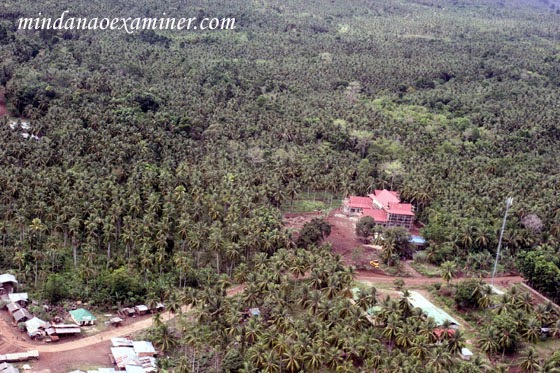
BASILAN PROVINCE (Mindanao Examiner / June 9, 2014) – An invasive species of coconut scale have destroyed over 76,000 coconut trees in the southern Philippine province of Basilan and the level of infestation there has reached an alarming stage, officials said Monday.
The same infestation is also ravaging the provinces of Cavite, Laguna, Batangas, Rizal, and Quezon – all in Luzon Island and officials were trying to determine how the insects (Aspidiotus Rigidus) managed to find its way to Basilan, one of five provinces under the Autonomous Region in Muslim Mindanao.
“We still don’t know how these invasive insects which are similar to those now destroying coconut plantations in Cavite, Laguna, Batangas and Rizal find its way in Basilan. We are investigating this now, but at the moment our hands are full in trying to control the infestation in Basilan, particularly in Isabela City and it is very alarming now,” Efren Carba, the provincial coconut development manager, told the regional newspaper Mindanao Examiner.
He said more than 76,000 coconut trees in different plantations in 16 out 33 villages in Isabela City are infected with the pests. Copra and rubber are the two main industries in Basilan, just several miles off Zamboanga City.
But Carba said the infestation of the coconut scale is at the moment within Basilan and there were no reports of similar problems in Sulu and Tawi-Tawi provinces, and also Zamboanga Sibugay, Zamboanga del Sur and Zamboanga del Norte, all in western Mindanao.
He said pests attack the leaves and fruits of coconut trees and there were reports that mangoes, bananas ang other fruit trees are also at risk of infestation in Basilan. He said there were other species of coconut scale in Basilan, but not the same species bow wrecking havoc to coconut plantations in the province and in Luzon.
“Right now, we are trying to control the infestation and are using both chemical and biological agents to fight off or exterminate the coconut scale. We also launched a massive information drive to help local farmers and the City of Isabela learn more about the coconut scale and how to control this,” Carba said.
Carba said the life cycle of a coconut scale is 30-32 days with each insect can spawn up to 50 eggs in just one week.
President Benigno Aquino has ordered the Philippine Coconut Authority to which Carba works to identify areas infested by coconut scale and to establish measures to control and manage the spread of the pests.
Under the order, the PCA would identify the infested areas and coordinate efforts in formulating appropriate emergency measures to treat infected coconut trees and host plants and these will include mechanical, chemical and biological measures, as well as quarantine measures to prevent the transport of infected coconut plants.
The local governments will also help implement emergency control measures by contributing manpower resources. Local government officials will also help in the massive information dissemination campaign in their areas.
Authorities have warned that failure to control the spread of the pest could ruin the country’s coconut industry. The Philippines is the world’s top supplier of coconut products. The coconut industry serves as the economic backbone of 68 of the country’s 80 provinces, employing 3.5 million farmers and bringing in $2 billion in net foreign earnings. (With a report from Ely Dumaboc)
